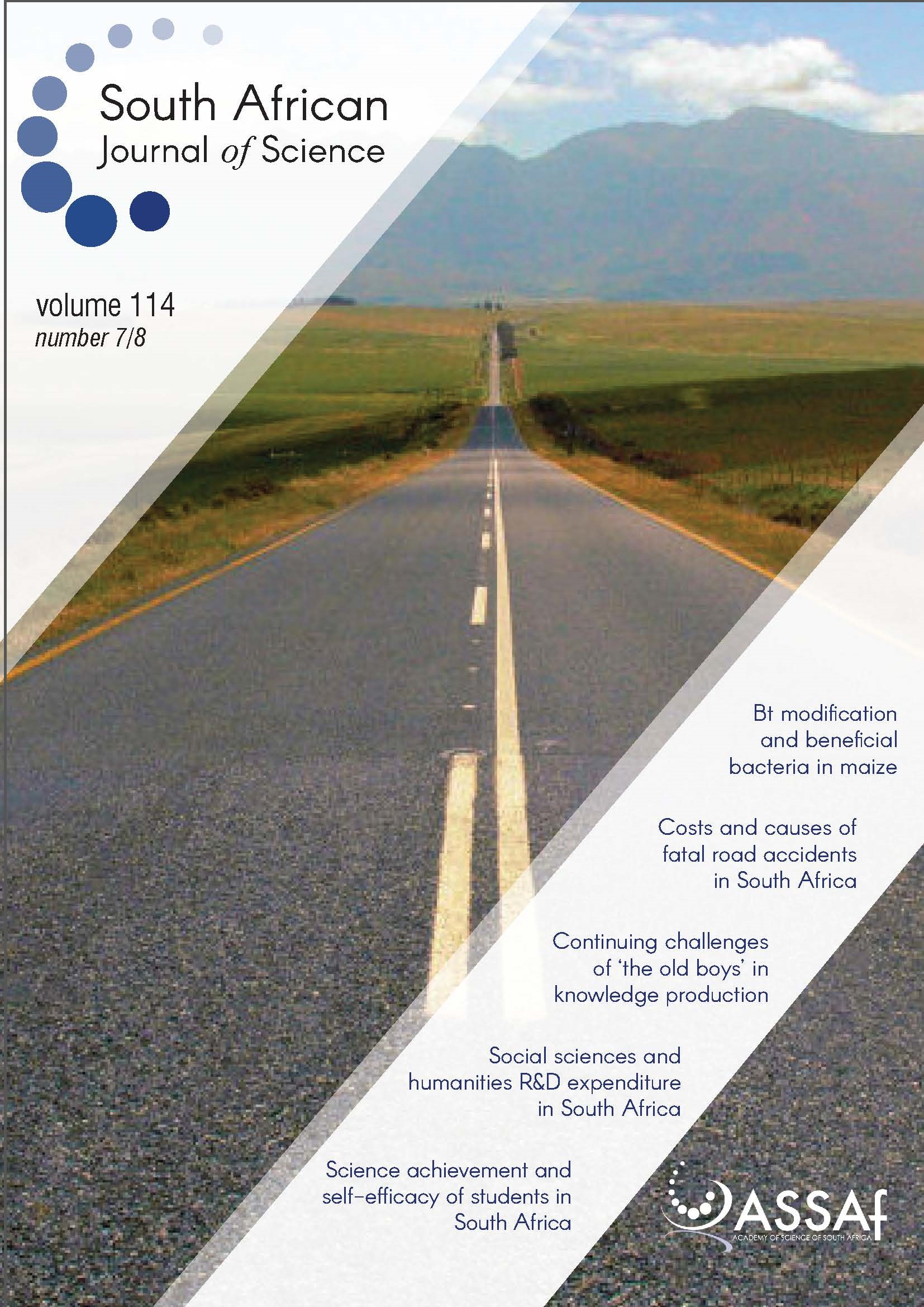Community composition and functions of endophytic bacteria of Bt maize
DOI:
https://doi.org/10.17159/sajs.2018/20170018Keywords:
endophytes, nitrogen fixation, phosphate solubilisation, antifungal activity, transgenic (Bt) maizeAbstract
We investigated the potential effects of genetic modification of Bt maize on the community composition and functions of bacterial endophytes associated with transgenic maize (Bt MON 810) in comparison with its isogenic parental line at two developmental stages. Bacterial isolates were obtained from transgenic (Bt) and non-transgenic (non-Bt) maize at 50- and 90-day-old developmental stages. Isolated bacterial endophytes were screened for their capabilities in phosphate solubilisation, nitrogen fixation, production of antifungal metabolites and production of indole acetic acid. After molecular identification, 60 isolates were obtained and clustered into 19 and 18 operational taxonomic units from 50- and 90-day-old maize, respectively. The isolates belonged to the genera Bacillus, Pantoea, Serratia, Yersinia, Enterobacter, Pseudomonas, Acinetobacter and Stenotrophomonas. Functional attributes and diversity of the isolated endophytes at both developmental stages were not significantly different for both maize varieties. However, functional attributes were significantly affected by plant growth stage. Isolates from younger plants were more efficient producers of indole acetic acid, but exhibited little or no capabilities for nitrogen fixation, phosphate solubilisation and antifungal activity in both maize genotypes. Based on these outcomes, Bt modification in maize does not seem to affect the community composition or functional attributes of bacterial endophytes.
Significance:
• Bt modification in maize does not affect the ecological guild or functional attributes of cultivable bacterial endophytes.
Downloads
Published
Issue
Section
License

All articles are published under a Creative Commons Attribution 4.0 International Licence
Copyright is retained by the authors. Readers are welcome to reproduce, share and adapt the content without permission provided the source is attributed.
Disclaimer: The publisher and editors accept no responsibility for statements made by the authors
How to Cite
- Abstract 2179
- PDF 1049
- XML 305
- EPUB 272
- Supplementary Material 295













.png)